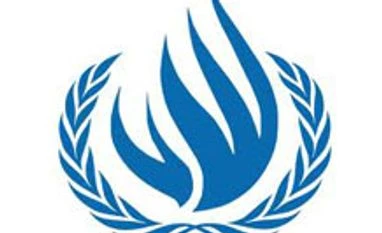India on Thursday said the world does not need lessons on democracy and human rights from Pakistan whose contribution as a leading exporter of terror and violence is unparalleled and where terrorists thrive and roam its streets with impunity.
Exercising India's Right of Reply at the 52nd Session of Human Rights Council General Debate, Under Secretary Dr. P R Thulasidass also called on Pakistan to focus on the safety, security and well-being of its minority communities instead of engaging in futile propaganda and attempting to foment communal disharmony in India.
"From a country where terrorists thrive and roam its streets with impunity, the world does not need lessons on democracy and human rights. Pakistan's contribution as a leading exporter of terror and violence is unparalleled," Thulasidass said.
He underlined that Pakistan is home to as many as 150 UN designated terrorists and terrorist entities listed by the UN, and these proscribed individuals have actively campaigned and contested in elections.
"Can Pakistan deny the fact that impunity reigns supreme in the country as perpetrators of the 26/11 Mumbai terror attacks continue to roam free?...Can Pakistan deny the fact that the world's most wanted terrorist Osama bin Laden was found living in Pakistan near a military academy, sheltered and protected by the deep State?" he asked.
Asserting that Jammu and Kashmir was, is and shall forever remain an integral part of India, Thulasidass said that the union territory is marching towards peace and prosperity along with the rest of India.
"This is despite Pakistan's repeated attempts to derail the process, through its active and sustained support to terror groups and its malicious disinformation campaign against India. The delegate of Pakistan has voiced Pakistan's frustration due to its failure in its malicious propaganda against India," the Indian diplomat said.
Also Read
Thulasidass said the pluralistic democracy of India is mature enough to address any issues including those instigated from outside.
"India is a secular State and safeguarding the rights of minorities forms an essential core of our polity. What minorities receive in Pakistan are blasphemy laws, systemic persecution, discrimination, denial of basic rights and freedoms, enforced disappearances and killings," he said.
Noting that the extent of religious discrimination is reflected in the loss of life, liberty and property on the mere accusations of blasphemy laws, the Indian diplomat said that Pakistan today stands out as the country having more cases of blasphemy than the rest of the world put together in the past few years.
(Only the headline and picture of this report may have been reworked by the Business Standard staff; the rest of the content is auto-generated from a syndicated feed.)
)